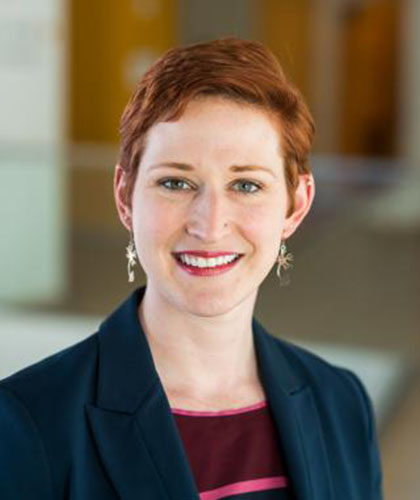
Romeo, Rachel
Hearing and Speech Sciences
Brain and Behavior Institute
Rachel Romeo, PhD, CCC-SLP (she/her/hers) is a developmental cognitive neuroscientist and licensed speech-language pathologist broadly interested in how children’s early experiences, both favorable and adverse, influence their neural, cognitive, and academic development, with a specific focus on language and literacy development. She directs the Language, Experience, and Development (LEAD) lab, where she employs interdisciplinary methods from developmental psychology, cognitive neuroscience (including structural and functional brain imaging), and direct educational interventions to study how young brains adapt to varying environments and lead to unique developmental paths. She is especially interested in socioeconomic differences in development, and how translational cognitive neuroscience may better support educational equity. Dr. Romeo’s research is funded by the National Institutes of Health, and has received international press by Scientific American, BBC, NPR, US News & World Report, and the World Economic Forum, amongst others.
Dr. Romeo received her PhD from the joint Harvard/MIT Program in Speech and Hearing Bioscience and Technology, MSc in Language Sciences from University College London, BA in Psychology and Linguistics from the University of Pennsylvania, and clinical licensure in Speech-Language Pathology from the MGH Institute of Health Professions. She also completed the Translational Postdoctoral Training in Neurodevelopment program at Boston Children's Hospital and Harvard Medical School.
In addition to her appointment in HDQM, Dr. Romeo holds a courtesy appointment in the Department of Hearing and Speech Sciences and the interdisciplinary program in Neuroscience and Cognitive Science. She is also a member of the Language Science Center, the Field Committee in Developmental Science, the Brain Behavior Institute, and the Maryland Neuroimaging Center.